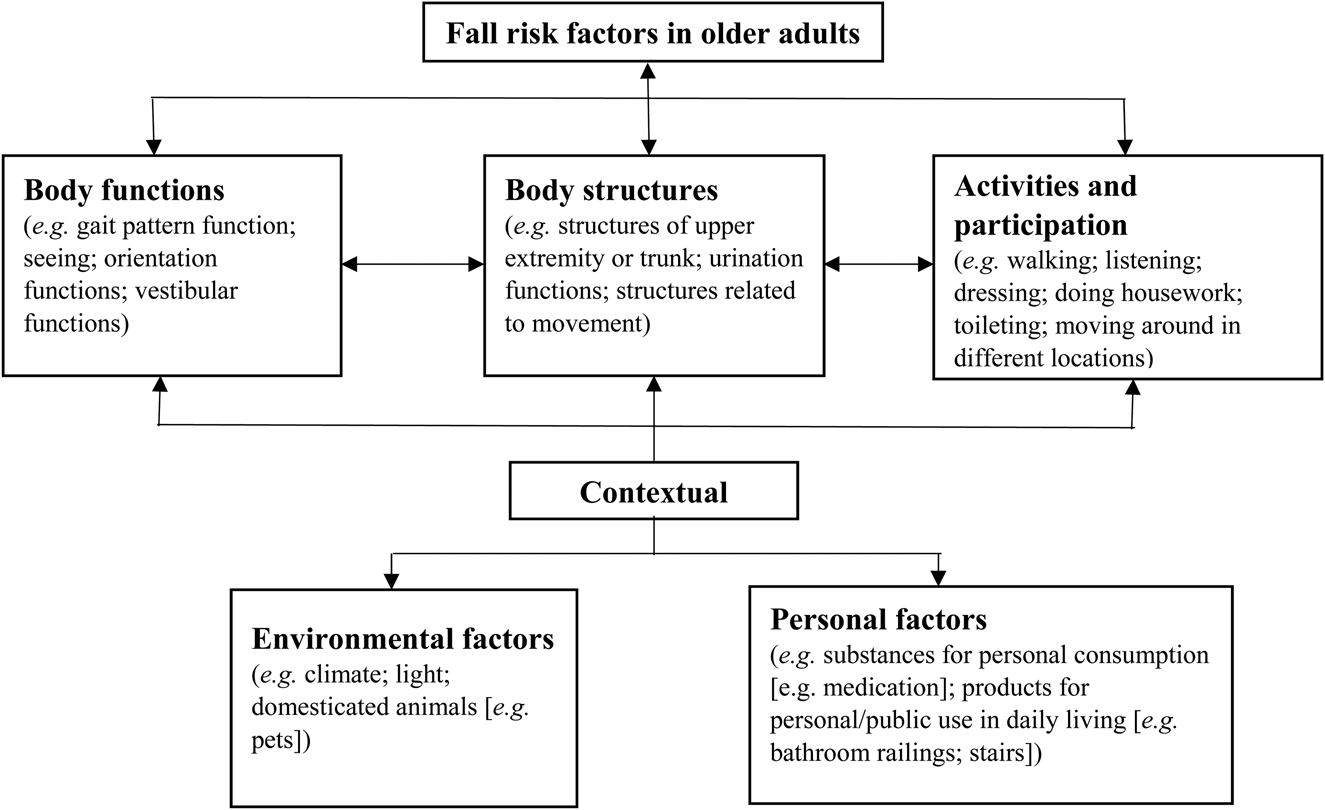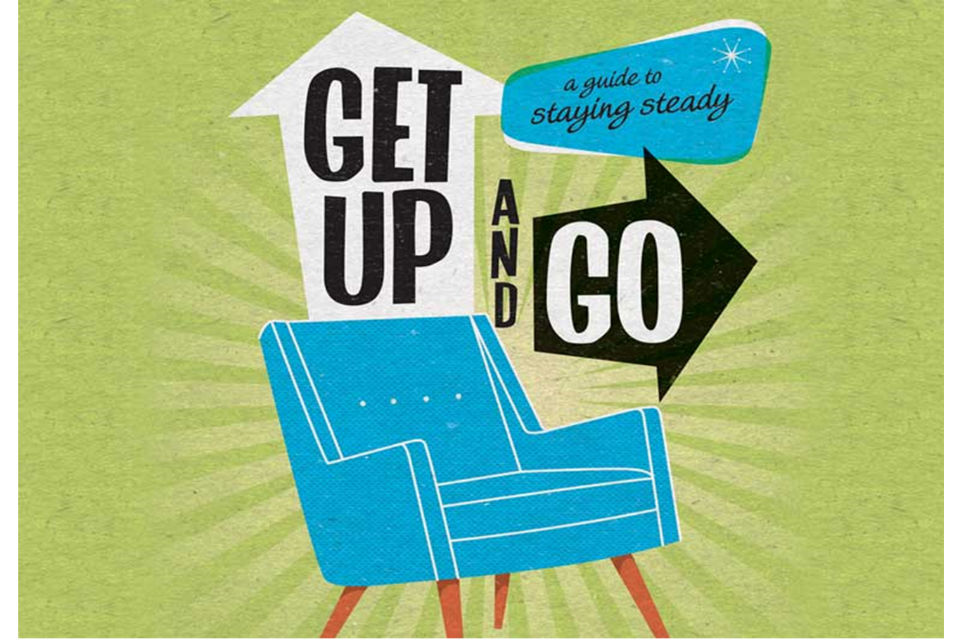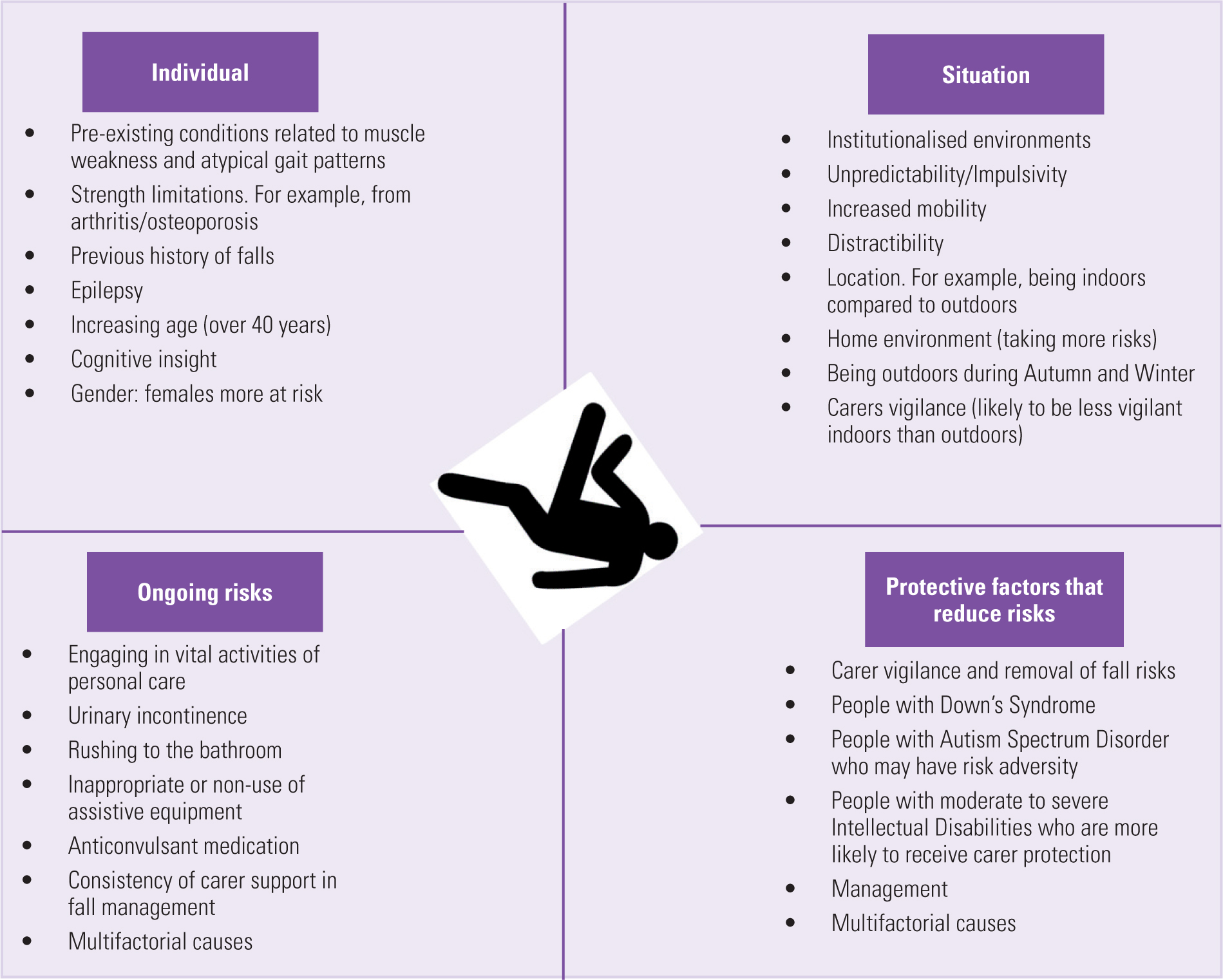The Facts About Dementia Fall Risk Revealed
The Facts About Dementia Fall Risk Revealed
Blog Article
Not known Facts About Dementia Fall Risk
Table of ContentsNot known Details About Dementia Fall Risk The Ultimate Guide To Dementia Fall RiskThe Basic Principles Of Dementia Fall Risk More About Dementia Fall RiskFascination About Dementia Fall Risk
In the community, inadequate street lighting or unsafe creeks and land fills might additionally create crashes. Loss Danger Evaluation Device (FRAT) is a 4-item falls-risk screening tool for sub-acute and residential care. The FRAT has 3 areas: fall threat condition, threat factor list, and activity strategy. A Fall Threat Status consists of data regarding background of recent falls, drugs, mental and cognitive standing of the client.If the individual ratings on a threat factor, the equivalent number of points are counted to the patient's autumn threat rating in package to the much appropriate. If a person's autumn threat rating completes 5 or greater, the person is at high danger for drops. If the individual ratings only 4 points or lower, they are still at some risk of falling, and the nurse must utilize their ideal medical assessment to manage all fall danger aspects as component of an alternative care plan.
These conventional strategies, in basic, help develop a safe setting that decreases unintentional falls and delineates core preventative measures for all patients. Indicators are important for people at risk for drops.
Fascination About Dementia Fall Risk
Wristbands must include the person's last and first name, date of birth, and NHS number in the UK. Just red shade should be made use of to indicate unique patient condition.
Items that are too far might need the client to reach out or ambulate unnecessarily and can possibly be a threat or contribute to falls. Helps avoid the individual from heading out of bed with no support. Nurses react to fallers' telephone call lights extra swiftly than they do to lights initiated by non-fallers.
Aesthetic impairment can substantially cause falls. Hip pads, when worn correctly, may lower a hip crack when loss happens. Maintaining the beds closer to the floor decreases the risk of drops and severe injury. Positioning the mattress on the flooring significantly reduces fall risk in some medical care setups. Reduced beds are created to lessen the distance a client falls after moving out of bed.
The Ultimate Guide To Dementia Fall Risk
Patients that are tall and with weak leg muscle mass that attempt to sit on the bed from a standing setting are likely to drop onto the bed since it's too low for them to lower themselves safely. If a high individual see here now attempts to get up from a reduced bed without help, the client is most likely to drop back down onto the bed or miss out on the bed and drop onto the flooring.
They're designed to advertise prompt rescue, not to avoid falls from bed. Audible alarm systems can additionally remind the individual not to rise alone. Using alarm systems can likewise be an alternative to physical restrictions. Apart from bed alarms, increased guidance for high-risk clients likewise find may assist stop drops.

People with an evasion stride boost fall possibilities substantially. To lower fall threat, shoes ought to be with a little to no heel, slim soles with slip-resistant tread, and sustain the ankle joints. Encourage patient to utilize nonskid socks to stop the feet from gliding upon standing. Nevertheless, motivate people to wear proper, well-fitting shoesnot nonskid socks for motion.
Not known Details About Dementia Fall Risk
In a research, homes with ample lighting record fewer falls (Ramulu et al., 2021). Renovation in illumination at home might minimize autumn prices in older grownups.

Caretakers are effective for guaranteeing a safe, safeguarded, and secure atmosphere. However, research studies demonstrated extremely low-certainty evidence that caretakers minimize loss threat in intense treatment health centers and just moderate-certainty that options like video surveillance can minimize caretaker use without raising autumn threat, suggesting that caretakers are not as beneficial as initially believed (Greely et al., 2020).
How Dementia Fall Risk can Save You Time, Stress, and Money.

Boosted physical fitness lowers the risk for falls and limits injury that is endured when autumn transpires. Land and water-based workout programs may be similarly helpful on balance and gait and consequently minimize the risk for drops. Water workout may add a favorable benefit my website on balance and gait for females 65 years and older.
Chair Surge Exercise is a simple sit-to-stand exercise that helps reinforce the muscles in the upper legs and buttocks and improves flexibility and independence. The goal is to do Chair Surge exercises without making use of hands as the customer becomes more powerful. See resources area for an in-depth guideline on how to perform Chair Increase exercise.
Report this page